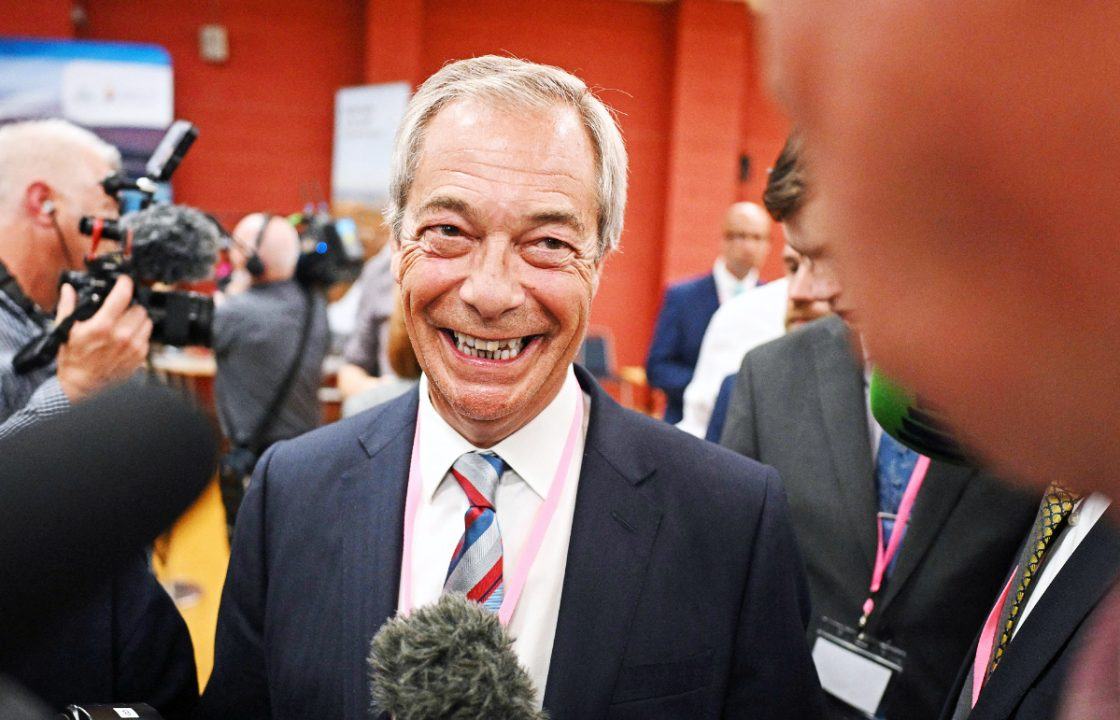If he can make it there, he can make it just about anywhere.
That’s what you need to know about Nigel Farage’s stunning victory over Labour in last night’s Runcorn and Helsby by-election.
It’s probably the biggest win of his long political career. It confirms that the Reform Party has the potential to redraw the map of British politics in historic fashion.
And Farage’s next stop is Scotland.
Yes, by-elections are an opportunity for a protest vote, and yes, this one was called because the local Labour MP was jailed for punching a constituent.
But nothing can take away from the significance of this result.
Runcorn and Helsby had one of the biggest Labour majorities anywhere in the UK – 16th on the list, to be exact.
It confirms polling that suggests Reform are in the lead nationally. It also confirms the trend in modern democratic politics, which Scotland was at the vanguard of when the SNP swept Labour aside in 2015: tribal loyalty is a thing of the past.
Voters don’t decide based on the colour of a rosette or how their parents or grandparents voted.
There are no safe seats anymore. Just about every Labour MP in the country will be feeling nervous now about what the next general election will bring.
Every Conservative MP, too. While the votes are still being counted in the English local and regional elections that took place on Thursday, Reform was always expected to take a huge chunk out of the Tory vote, and it delivered.
The election of Andrea Jenkyns, a former Conservative MP, as the new Reform regional mayor of Lincolnshire, a true blue Tory heartland, will be symbolic to many of her worried former colleagues.
It does mean that for the first time, a party led by Nigel Farage will actually have to run something, and will have a record to defend. But clearly, on these results, we’re nowhere near peak Reform yet.
Questions were already being asked about Kemi Badenoch’s leadership. She had no chance of turning things around for this set of elections; she will have to fight to get the chance to try at the next ones.
Voices within the Conservatives for a merger with Reform will get louder, but as Farage himself has said on Friday morning, now that he’s the one taking the fight to Labour, why would he be interested?
This was the first major electoral test for Keir Starmer’s party, and the result will pile the pressure on a government that was already feeling the weight of it.
It will mean even more questions about his tough economic programme – especially the decision to cut winter fuel payment from millions of pensioners, which must now go down as one of the most damaging policies in political terms of recent times.
Backbench Labour MPs have so far been remarkably well behaved, given the economic pain being imposed. That won’t continue for much longer. A Cabinet reshuffle to reset Starmer’s government before the summer now looks certain, and an immigration policy relaunch due later month will take on even more significance, given the political threat from Reform.
The next electoral test will be devolved elections next year, including for the Scottish Parliament. Holyrood has never elected a single MSP to the right of the Conservatives, but we now have to take seriously polling that says they could win a dozen seats in 2026.
Those victories will come at the expense of the Tories, but also Labour. They would clear a path for another SNP victory. But they would also signal what could become the most chaotic period of parliamentary politics in Scotland in devolved history.
Forming a government and passing a budget in a Scottish Parliament that includes Reform will be more difficult than ever before, whether it’s John Swinney or Anas Sarwar in charge. There will be few parties willing to work with one another – and while in the past, opposition parties have always stepped back from the brink when it came to bringing down a First Minister and triggering an early election, would Reform?
As one Scottish Labour MP told me this week: “The one thing I’d bet on is the next Scottish Parliament not lasting the full term.”
One thing’s for sure, the next year until those Holyrood elections will be all about Nigel Farage’s impact on politics across the UK. He’s just getting started.
Follow STV News on WhatsApp
Scan the QR code on your mobile device for all the latest news from around the country





























